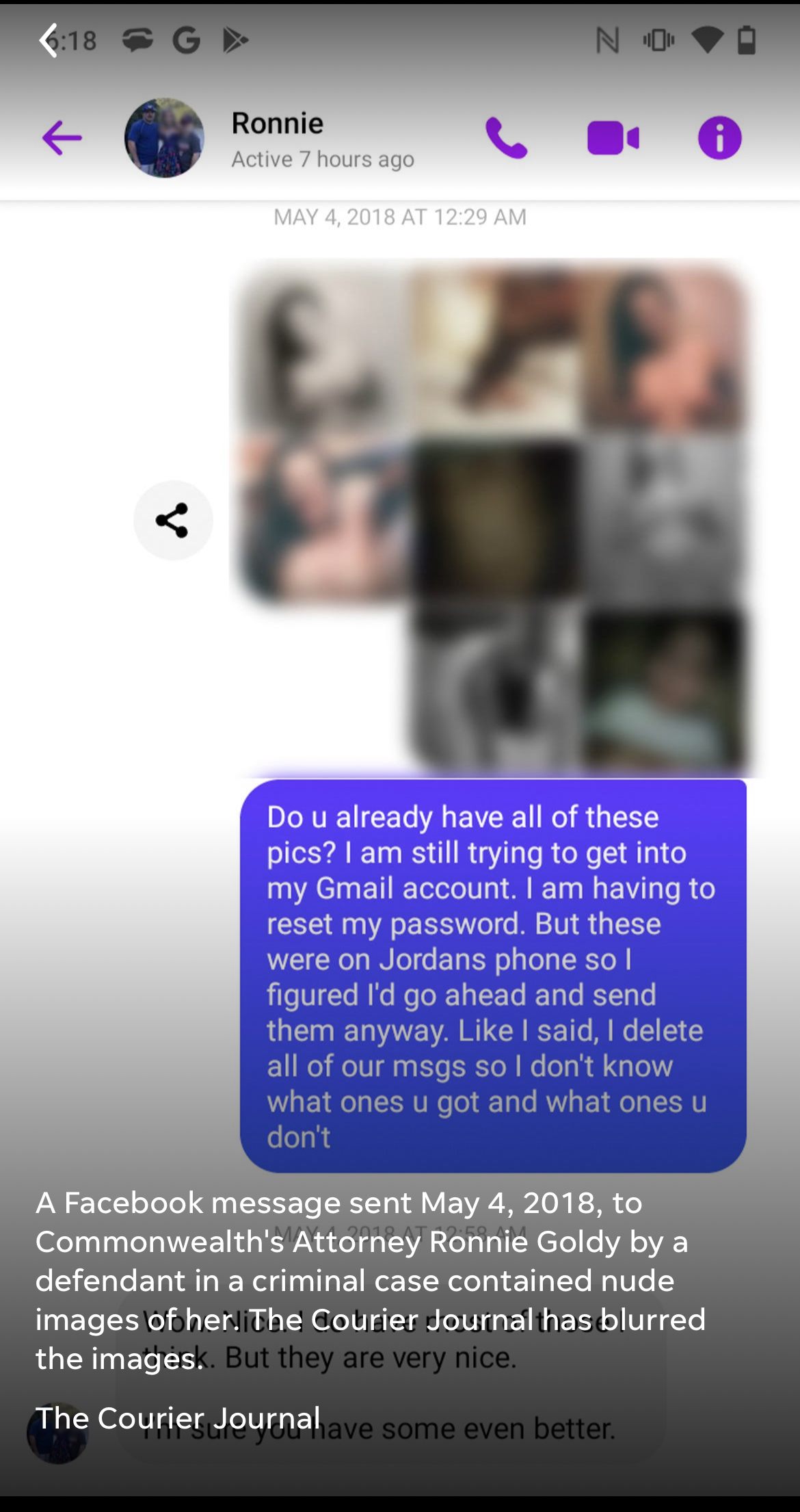
If further proof is required of the importance of the legal question currently in the Court of Appeals, Kentuckians need look no further than Andy Wolfson’s article in the July 12 Courier Journal.
https://www.courier-journal.com/story/news/crime/2022/07/12/kentucky-pr…
Wolfson focuses on “[a]n elected [Commonwealth’s Attorney] in Eastern Kentucky [who] exchanged Facebook messages with a defendant in which he promised to help her with her criminal cases in exchange for nude photos and videos of herself.”
The prosecutor is a “public agency,” as defined in the open records law, as a “state or local government officer.”
https://apps.legislature.ky.gov/law/statutes/statute.aspx?id=51390
The messages are “public records,” contrary to the cynical and self-serving “reasoning” of the current attorney general — who requires an agency’s physical possession of records as an open records law trigger) — as “documentation regardless of physical form or characteristics, which is prepared, owned, used, in the possession of or retained by a public agency.”
“Discussion of “public business,” although not defined in statute, is defined in caselaw
as “discussion of the various alternatives to a given issue about which the agency has the option to take action.”
https://caselaw.findlaw.com/ky-supreme-court/1092479.html
To prosecute or not to prosecute (in exchange for defendant’s nude photos), those are the alternatives on which the Commonwealth’s Attorney has the option to act.
Any construction of the open records law that enables a public official or employee to avoid accountability for abuse of the public trust — by communicating on a private social media account or a private device — is contrary to both the spirit and the letter of that law.
And any public official who advances this interpretation acts in blatant disregard of the law and of the voters who elected him to adjudicate disputes under that law.
In the story reported by Wolfson, the messages were not obtained through an open records request. Instead, they were obtained from an attorney representing a judge — herself in hot water — who seeks to discredit the prosecutor. He, among others, complained about the judge. The attorney acquired them from the boyfriend of the defendant whose nude photos the prosecutor is alleged to have solicited in exchange for preferential treatment in the courts.
Wolfson could have obtained them through an open records request since those messages are public records as defined in the open records law. The messages are governed by the open records law notwithstanding the place where they are kept — here, the prosecutor’s personal Facebook account.
“In the end, it is the nature and purpose of the document, not the place where it is kept, that determines its status as a public record. 66 Am. Jur. 2d Records and Recording Laws, §3 (1973).”
https://cases.justia.com/kentucky/court-of-appeals/1999-08-12-1998-CA-0…1396122529
What will it take to convince the nay sayers? Or is it possible that the nay sayers are more concerned about “inconvenience or embarrassment to public officials or others?”
https://apps.legislature.ky.gov/law/statutes/statute.aspx?id=23058



